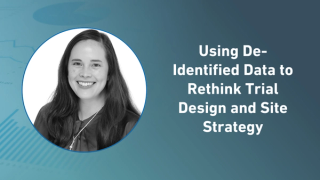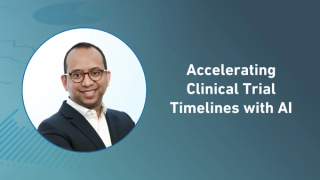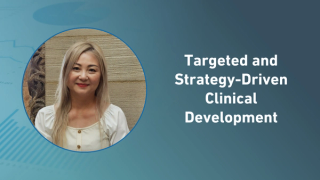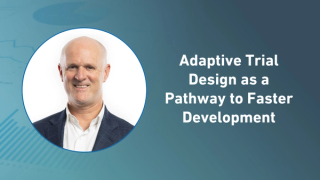
Trial Design
Latest News

Latest Videos

Shorts

More News
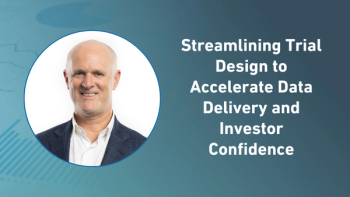
Understand how intelligent study design, focused data collection, and faster analytics can help clinical teams deliver meaningful results that sustain investor momentum.

An analysis of primary Phase II protocols paired with their Phase III pivotal trials spotlights the need to balance scientific curiosity with participant and site burden.

By adopting structured practices today, clinical trials can deliver diagnostics that are reliable, impactful, and ready for tomorrow’s healthcare needs.

In this video interview, Ananth Kadambi, VP of real-world evidence and modeling solutions at Certara, highlights how clinical operations teams must enhance patient tracking, engage data monitoring committees earlier, and plan subgroup analyses to meet FDA’s overall survival guidance.

Pharma R&D faces rising trial complexity, high costs, and patient and investigator shortages, driving the need for adaptive models and data-driven strategies to speed therapies to market.

In this video interview, Ananth Kadambi, VP of real-world evidence and modeling solutions at Certara, explains how integrating real-world evidence and predictive modeling early in development can streamline OS-focused trials while meeting regulatory and payer expectations.

In this video interview, Ananth Kadambi, VP of real-world evidence and modeling solutions at Certara, discusses how model-informed drug development can help sponsors predict efficacy and safety outcomes to align shorter trials with FDA expectations for overall survival.

In this video interview, Ananth Kadambi, VP of real-world evidence and modeling solutions at Certara, explains how emphasizing overall survival ties trial success to both efficacy and safety while also shaping payer and access considerations post-approval.
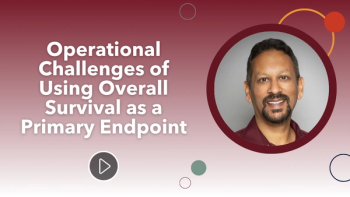
In this video interview, Ananth Kadambi, VP of real-world evidence and modeling solutions at Certara, outlines how FDA’s emphasis on overall survival in oncology trials requires stronger safety monitoring, subgroup planning, and patient tracking.

In an era of constant policy change, timely real-world data is emerging as pharma’s most critical tool to track patient access, anticipate shifts in treatment utilization, and improve outcomes in real time.

In this video interview, Umesh Chaudhari, executive medical director and global program head of the C5 programs at Regeneron, describes how double-blind double-dummy design, site reminders, and patient engagement measures ensured high adherence with quarterly subcutaneous dosing in the NIMBLE trial.

In this video interview, Umesh Chaudhari, executive medical director and global program head of the C5 programs at Regeneron, explains how large sample size and stratification by immunosuppressant use ensured balance and consistent efficacy assessments in the NIMBLE study.

Clinical trial enrollment and retention challenges, coupled with limited site resources, highlight the need for stronger site support, collaboration, and patient-centered trial models.
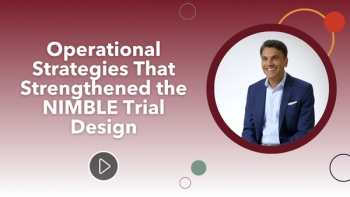
In this video interview, Umesh Chaudhari, executive medical director and global program head of the C5 programs at Regeneron, describes how double-blind double-dummy dosing, standardized assessments, and site training ensured protocol adherence and data integrity in the NIMBLE trial.

In this video interview, Umesh Chaudhari, executive medical director and global program head of the C5 programs at Regeneron, explains how NIMBLE showed cemdisiran achieved strong efficacy with partial complement inhibition and reduced disease worsening compared to combination therapy.

In this video interview, Sunny Kumar, MD, partner at Informed Ventures, discusses how FDA guidance and investor expectations are shaping resilient trial designs that use adaptive methods, virtual controls, and decentralization to lower costs and accelerate patient access.

How decentralized clinical trial designs and smart data integration are transforming the patient experience.

An overview of key considerations shaping the BGM and CGM decision, why both often coexist in trials today, and how eCOA platforms play a critical role in supporting this data collection at scale.

A new systems-based framework helps sponsors and CROs move beyond prediction to understand why site selection succeeds or fails, enabling targeted interventions that boost recruitment, data quality, and trial efficiency.

In this episode of the Applied Clinical Trials Brief, we spotlight a recent video interview in which Jon Walsh, founder and chief scientific officer of Unlearn.AI, shared how digital twins can improve trial efficiency, enhance patient-centric designs, align with regulatory expectations, and accelerate access to new therapies.

In this episode of the Applied Clinical Trials Brief, we spotlight a recent video interview in which Jon Walsh, founder and chief scientific officer of Unlearn.AI, shared how digital twins can improve trial efficiency, enhance patient-centric designs, align with regulatory expectations, and accelerate access to new therapies.

An overview of how recent funding reductions are reshaping clinical trial operations, from site sustainability and patient recruitment to trial design and long-term strategy.

A 2025 survey highlights growing momentum for multi-indication drug development, with opportunities in innovative trial design, targeted patient selection, and real-world evidence to speed label expansion.

In this video interview, Meri Beckwith, Co-CEO of Lindus Health, shares practical ways clinical teams can strengthen trial protocols for expedited programs—such as incorporating control groups where possible, leveraging synthetic and real-world data, and adopting adaptive trial designs to reduce regulatory risk.

In this video interview, Meri Beckwith, Co-CEO of Lindus Health, discusses whether recent trial design rejections signal a broader shift in FDA expectations or simply reflect changes in individual reviewers, emphasizing that current unpredictability may be more situational than systemic.







